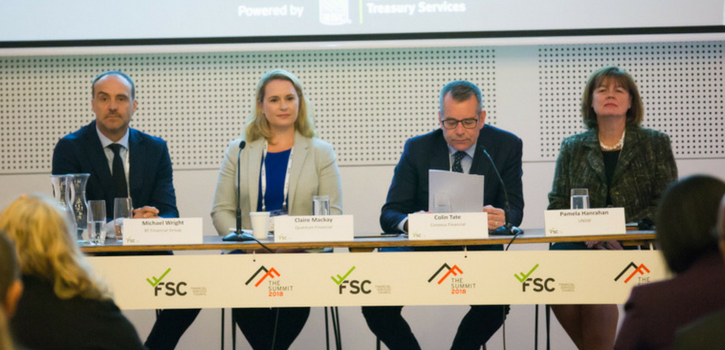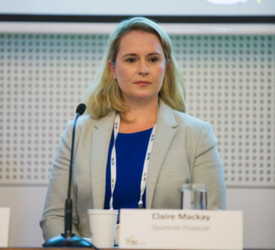Financial advice and the long road ahead.
A long road ahead for the advice industry

The FSC Summit 2018 session on the future of the advice industry was served to a packed room, and it was clear that the future looks uncertain as the royal commission continues its work.
Chair Colin Tate from Conexus Financial ran through some stats: 47 per cent of the advisers on ASIC's register do not have a bachelor’s degree, and based on the new minimum education standards imposed by FASEA, planners on average need to take 642 hours of study — with 52 per cent facing a minimum of 960 hours.
“The evidence is that what we’ve been doing up until now can’t continue in its current form, so if we started from scratch and wanted to achieve an outcome that best serves the interests of people who are making complex financial choices, what would that look like?” said Pamela Hanrahan, Deputy Head, School of Taxation and Business Law, UNSW.
“Unlike when we designed the last system in 2001, we wouldn’t confuse a whole lot of different relationships under one title, which is advice.”

Starting with what would be removed from the advice industry if it was being built again from scratch Claire Mackay, Principal, Quantum Financial, raised two points: commissions, and vertical integration.
She also spoke to what makes a profession exactly that, and used the fields of accounting and medicine as reference points.
Michael Wright, General Manager of BT Financial Advice, stated that he believed the advice industry wasn’t fundamentally broken, but in need of significant work. He acknowledged the industry needed to change how it operates but pointed out the system is young and didn’t have the benefit of 600 years of time to work on getting it right, like the medical profession.

“It’s an immature industry, only three to four decades young. Are we growing up, are we going through growing pains? Absolutely. What does make me nervous though is at this moment in our growth journey, we need the right leadership, the right mentorship, the right guidance to make sure that when we do come out of this moment we’re a very viable profession.”
Wright said that in his opinion, the vast majority of advisers were out there trying to do the right thing by their clients. Hanrahan, who pointed to ASIC research that continually found failures, disputed this.

“Unfortunately, the argument that most people are doing the right thing just delays that line in the sand, that hard work, that ripping off the band aid,” Mackay said. She also said the industry itself had made the relationship with Australians harder.
“We’ve trained Australians not to value advice. By hiding the payment through trailing commissions, it never comes out of their pocket. If you don’t pay for something, you don’t value it.”
Hanrahan encouraged the industry to get involved with shaping the regulation agenda. She said the biggest role for politicians was to remove the “nonsense, counterproductive regulation” that currently exists.
“The very last thing that they’re going to want to do after the royal commission and say to the general public 'we’re getting rid of three quarters of this regulatory regime’, but we will never fix it until we do that.”

